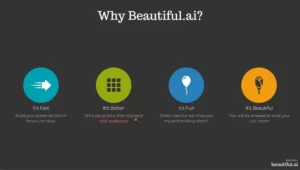Healthcare is an increasingly data-driven industry, and business intelligence (BI) is playing a critical role in helping organizations to make informed decisions and optimize operations. BI involves the use of tools, technologies, and practices to collect, store, process, and analyze data to gain insights and support decision-making. Data analytics, a key component of BI, involves the use of advanced analytical techniques and tools to extract insights from large and complex data sets.
The use of BI and data analytics in the healthcare industry is expected to increase in the coming years, leading to an increase in demand for BI jobs, including positions such as BI analysts, data scientists, and BI developers.
The ability to analyze large amounts of data is becoming more and more valuable to healthcare employers. Business intelligence is a notion at the crossroads of various data science technologies, and it is a requirement for many open positions. Professionals that excel in maximizing the utility of business intelligence find insights that can save lives.

The management, analysis, and application of data are all being revolutionized by data analytics, which is now commonplace in most businesses. Data analytics has provided substantial benefits to the healthcare business, including the ability to reduce treatment costs, forecast disease breakouts, and enhance the quality of life for patients.
The healthcare analytics industry stands to gain a great deal by adopting a data-driven approach, but there are also substantial hurdles that must be overcome, such as ensuring quality data is collected and establishing mechanisms to act on insights in real-time.
Table of Contents
What is business intelligence?
Business intelligence (BI) refers to the tools, technologies, and practices that organizations use to collect, store, process, and analyze data to gain insights and make informed business decisions.
BI involves the use of various data sources, such as transactional data, market research data, and social media data, to gather information about a business’s operations, market trends, customer behavior, and other factors that can impact the organization’s performance. This data is then analyzed and used to generate reports, dashboards, and other types of visualizations that provide insights and help decision-makers understand the current state of the business and make informed decisions about the future.

There are many different BI tools and technologies available, including data warehouses, data visualization software, dashboards, and reporting tools. These tools allow businesses to collect, store, and analyze data from a variety of sources, including internal data sources such as enterprise resource planning (ERP) systems, customer relationship management (CRM) systems, and financial systems, as well as external data sources such as market research firms and social media platforms.
The medicare professionals need solid SEO strategies to avoid spreading misinformation
BI can be used by organizations of all sizes and in all industries to improve decision-making, optimize operations, and drive business growth. Some common uses of BI include identifying new business opportunities, improving customer service, optimizing marketing campaigns, and reducing costs.
What is the role of business intelligence in the healthcare industry?
Business intelligence plays an important role in the healthcare industry by helping organizations collect, store, process, and analyze data to gain insights and make informed decisions. BI can be used to improve patient care, optimize operations, and drive business growth.
Some specific ways that BI can be used in the healthcare industry include:
- Improving patient care: BI can be used to analyze patient data and identify trends and patterns that can help healthcare providers to better understand the needs of their patients and provide more targeted and personalized care.
- Optimizing operations: BI can be used to analyze data on healthcare facility utilization, staffing, and other operational factors to identify opportunities for improving efficiency and reducing costs.
- Driving business growth: BI can be used to analyze market trends, customer behavior, and other factors to identify new business opportunities and develop strategies for growth.
- Enhancing research and development: BI can be used to analyze data on new treatments, medications, and other healthcare products to identify opportunities for research and development.
- Improving public health: BI can be used to analyze data on public health trends, such as the spread of infectious diseases, to identify trends and patterns that can help public health officials to better understand and address public health issues.
Clinical business intelligence
Clinical business intelligence (CBI) refers to the use of business intelligence (BI) technology, tools, and techniques in the healthcare industry to gather, store, process, and analyze data in order to acquire insights and make educated decisions regarding clinical practices and patient care.
Rising cybersecurity risks threaten the medicare industry
CBI often utilizes many data sources, such as electronic health records (EHRs), clinical data warehouses, and other medicare data sources, to collect information regarding patient care and treatment outcomes. This data is then processed and used to develop reports, dashboards, and other visualizations that provide insights into the efficacy of clinical practices, patient outcomes, and other factors that can influence the quality of care.
Examples of business intelligence in the healthcare industry
There are many real-life examples of business intelligence (BI) in the medicare industry in practice. Here are a few examples:
- Using BI to analyze patient data and identify trends and patterns that can help healthcare providers to better understand the needs of their patients and provide more targeted and personalized care. For example, a hospital may use BI to identify patterns in patient data that suggest a certain group of patients is at higher risk of developing certain health conditions and then take proactive steps to prevent or manage those conditions.
- Using BI to analyze data on clinical processes, staffing, and other operational factors to identify opportunities for improving efficiency and reducing costs. For example, a healthcare provider may use BI to identify trends in patient wait times or resource utilization and then take steps to optimize those processes to reduce waste and improve patient satisfaction.
- Using BI to analyze data on new treatments, medications, and other products to identify opportunities for research and development. For example, a pharmaceutical company may use BI to analyze data on the effectiveness of different medications in treating certain conditions and then use that information to identify opportunities for developing new drugs or improving existing ones.
- Using BI to analyze data on public health trends, such as the spread of infectious diseases, to identify trends and patterns that can help public health officials to better understand and address public health issues. For example, a public health department may use BI to analyze data on the spread of certain infectious diseases and identify risk factors or areas of higher transmission, and then take steps to intervene and prevent the further spread of the disease.
Business intelligence in healthcare: Jobs and opportunities
It is important to have business intelligence (BI) specialists in the healthcare sector. BI specialists are responsible for collecting, storing, processing, and analyzing data to gain insights and support decision-making, and they are skilled in using a variety of BI tools and technologies to extract insights from data.
BI specialists can help organizations identify new business opportunities and develop strategies for growth. By analyzing data on market trends, customer behavior, and other factors, BI specialists can help medicare providers to identify areas of demand and develop targeted marketing and business development strategies.

Overall, BI specialists are valuable members of the medicare team who play a critical role in helping organizations to make informed decisions, optimize operations, and drive business growth.
Here are a few examples:
- BI analyst: BI analysts are responsible for collecting, storing, processing, and analyzing data to gain insights and support decision-making. In the healthcare industry, BI analysts may work with data from electronic health records (EHRs) and other data sources to identify trends and patterns that can help to improve patient care and optimize clinical operations.
- Data scientist: Data scientists are tasked with finding patterns and trends in massive datasets using sophisticated analytical methods and software. Data scientists in healthcare may analyze information from electronic health records (EHRs), clinical trials, and other sources to spot patterns that can lead to better patient care and greater revenue.
- BI developer: BI developers are responsible for designing, building, and maintaining BI systems and tools. In the healthcare industry, BI developers may work with data from EHRs and other medicare data sources to create dashboards, reports, and other types of visualizations that help providers to better understand patient care and optimize clinical operations.
- BI project manager: A BI project manager oversees the whole lifecycle of a BI project, from initial conception through final implementation and delivery of the resulting BI system. Project managers with expertise in business intelligence (BI) may coordinate the efforts of analysts, developers, and other BI experts to implement solutions that enhance patient care, streamline operations, etc.
Conclusion
In conclusion, business intelligence is playing an increasingly important role in the healthcare industry, particularly in the digital era of ours. With the proliferation of electronic health records (EHRs) and other data sources, there is a wealth of data available to be analyzed and used to improve patient care, optimize clinical operations, and drive business growth.

Data science, which involves the use of advanced analytical techniques and tools to extract insights from large and complex data sets, is a key component of BI in the healthcare industry. Data scientists and other BI specialists are skilled in using a variety of BI tools and technologies to identify trends and patterns in medicare data that can help to improve patient care and optimize clinical operations.
As the healthcare industry continues to evolve and become more data-driven, the importance of BI and data science will only continue to grow.
- SEO Powered Content & PR Distribution. Get Amplified Today.
- Platoblockchain. Web3 Metaverse Intelligence. Knowledge Amplified. Access Here.
- Source: https://dataconomy.com/2022/12/business-intelligence-healthcare/
- 1
- a
- ability
- About
- acquire
- Act
- address
- Adopting
- advanced
- AI
- All
- amounts
- analysis
- analyst
- Analysts
- Analytical
- analytics
- analyze
- analyzing
- and
- Application
- approach
- areas
- author
- auto
- available
- become
- becoming
- being
- benefits
- Better
- breakouts
- Building
- business
- business development
- business intelligence
- businesses
- Campaigns
- care
- cbi
- certain
- changing
- Clinical
- clinical trials
- collect
- Collecting
- coming
- Common
- company
- complex
- component
- conclusion
- conditions
- content
- continue
- continues
- coordinate
- Costs
- create
- critical
- Crossroads
- Current
- Current state
- customer
- customer behavior
- Customer Service
- Cybersecurity
- data
- Data Analytics
- data science
- data sets
- data visualization
- data-driven
- datasets
- deal
- Decision Making
- decision-makers
- decisions
- delivery
- Demand
- Department
- description
- designing
- develop
- Developer
- developers
- developing
- Development
- different
- digital
- Disease
- diseases
- Display
- drive
- Drugs
- effectiveness
- efficiency
- efforts
- Electronic
- Electronic Health Records
- employers
- ensuring
- Enterprise
- Era
- establishing
- etc
- evolve
- example
- examples
- Excel
- existing
- expected
- expertise
- experts
- external
- extract
- Facility
- factors
- few
- final
- financial
- financial systems
- Find
- finding
- firms
- Forecast
- from
- further
- future
- Gain
- generate
- great
- greater
- Group
- Grow
- Growth
- headline
- Health
- healthcare
- healthcare industry
- height
- help
- helping
- here
- higher
- How
- HTTPS
- Hurdles
- identify
- identifying
- image
- Impact
- implement
- implementation
- importance
- important
- improve
- improving
- in
- include
- Including
- Increase
- increasingly
- industries
- industry
- Infectious diseases
- influence
- information
- informed
- initial
- insights
- Intelligence
- internal
- intervene
- issues
- IT
- Jobs
- Key
- large
- lead
- leading
- Life
- Lives
- make
- manage
- management
- manager
- Managers
- many
- Market
- market research
- Market Trends
- Marketing
- massive
- max-width
- Media
- Medicare
- Members
- methods
- more
- most
- name
- Need
- needs
- New
- Notion
- open
- operational
- Operations
- opportunities
- Optimize
- optimizing
- order
- organizations
- Other
- Overcome
- particularly
- patient
- patients
- patterns
- performance
- Personalized
- Pharmaceutical
- planning
- Platforms
- plato
- Plato Data Intelligence
- PlatoData
- Play
- playing
- positions
- Post
- practice
- practices
- prevent
- Proactive
- process
- processes
- processing
- Products
- professionals
- project
- provide
- provided
- provider
- providers
- public
- public health
- quality
- real-time
- records
- reduce
- reducing
- refers
- regarding
- relationship
- Reporting
- Reports
- requirement
- research
- research and development
- resource
- responsible
- resulting
- revenue
- revolutionized
- Risk
- risk factors
- risks
- Role
- satisfaction
- Save
- Science
- Scientist
- scientists
- sector
- seo
- service
- Sets
- sizes
- skilled
- Social
- social media
- social media platforms
- Software
- solid
- Solutions
- some
- sophisticated
- Sources
- specialists
- specific
- Spot
- spread
- Spreading
- staffing
- stands
- State
- Steps
- store
- strategies
- streamline
- substantial
- such
- support
- system
- Systems
- Take
- targeted
- team
- techniques
- Technologies
- Technology
- The
- their
- threaten
- Through
- times
- to
- tools
- top
- transactional
- treating
- treatment
- Trends
- trials
- true
- types
- understand
- URL
- use
- utility
- utilizes
- Valuable
- variety
- various
- visualization
- wait
- Waste
- ways
- Wealth
- which
- WHO
- Wikipedia
- will
- Work
- years
- zephyrnet











